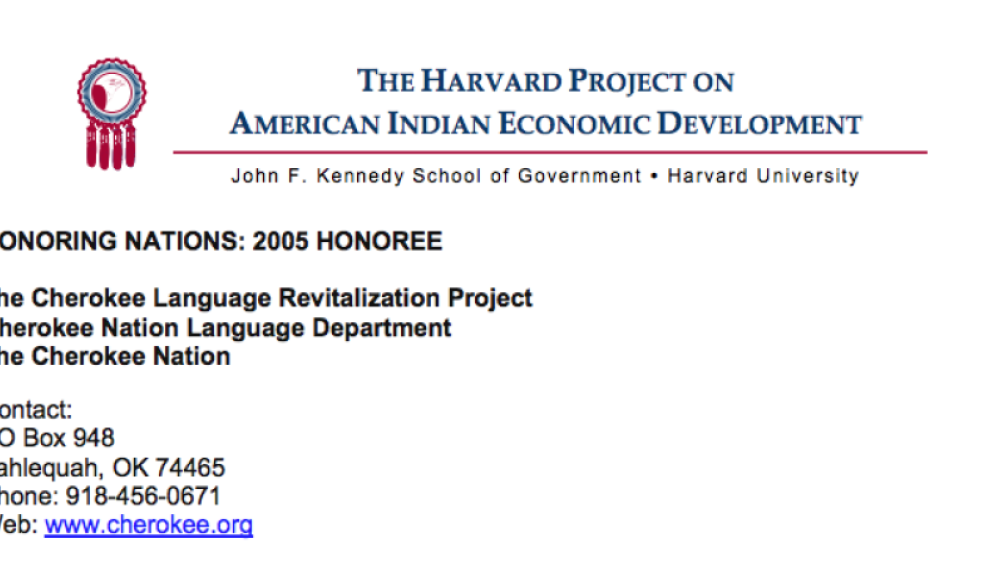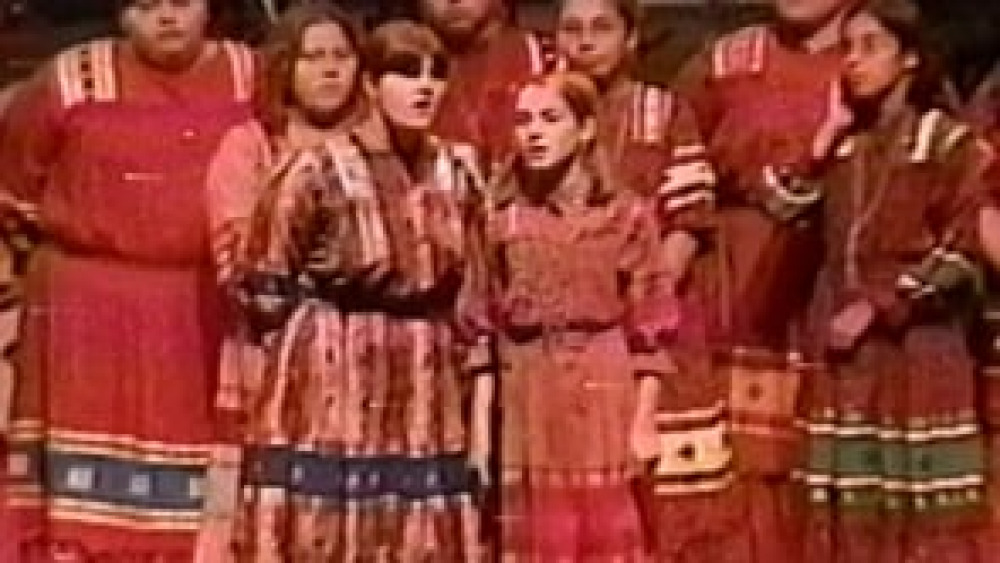Made up of 45 Cherokee teenagers, the Cherokee National Youth Choir sings almost exclusively in Cherokee. The choir performs traditional Cherokee music, gospel, patriotic music translated into Cherokee, and children's songs...
Additional Information
American Experience (in association with NAPT). "Teaching Teenagers." PBS "We Shall Remain" documentary series. April 13, 2009. Film. (http://www.pbs.org/wgbh/amex/weshallremain/native_now/language_cherokee_2, accessed April 19, 2013)


